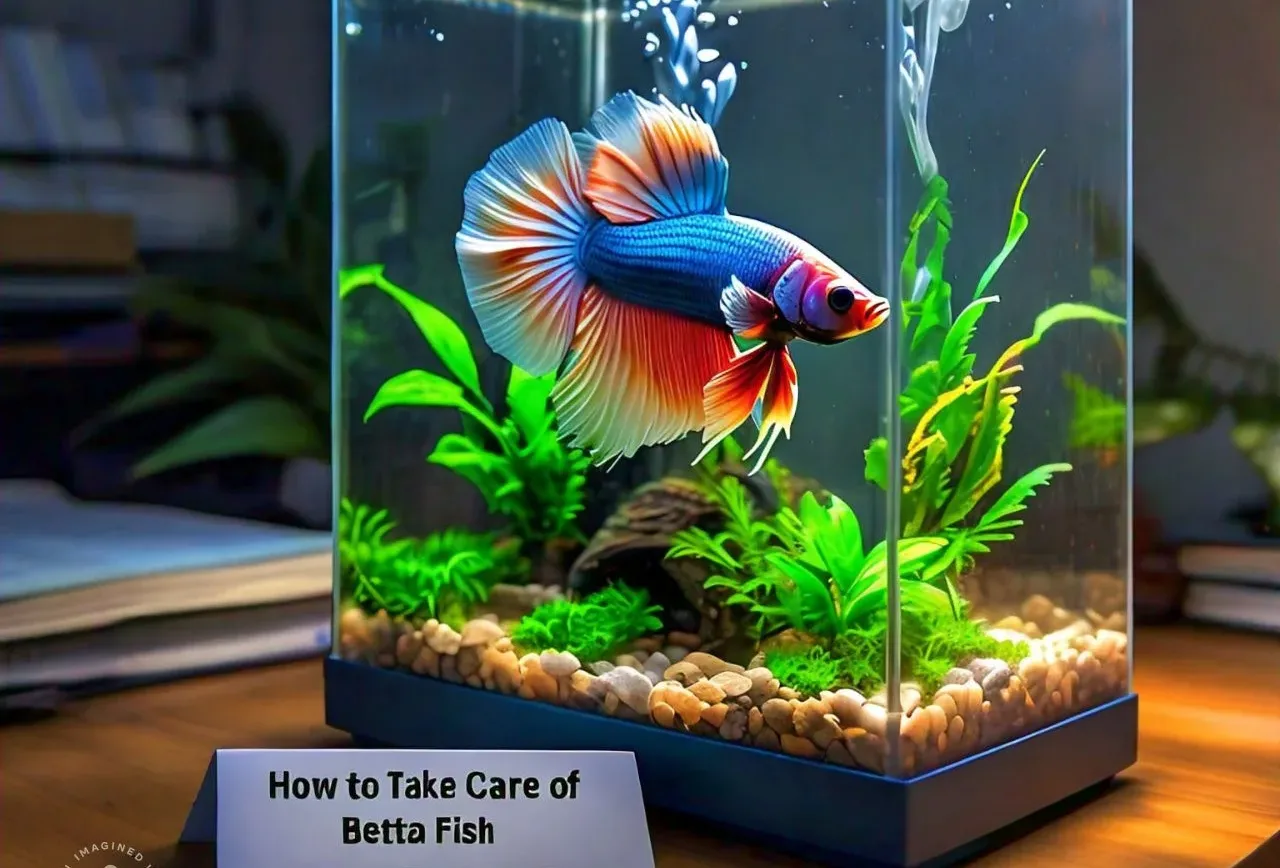It’s easy because bettas don’t need a lot of space and can live in small tanks. However, it can be tricky because bettas need clean water, the right temperature, and a good diet to stay healthy. You have to change their water regularly and make sure their tank has a filter and a heater. They also like some plants and hiding spots in their tank to feel safe.
Take Care of a Betta Fish
- Betta fish need clean water to stay healthy. Use a water conditioner to remove harmful chemicals from tap water before adding it to the tank.
- The water temperature should be between 76-81°F (24-27°C). Use a heater to keep the water warm.
- Test the water regularly to make sure the pH level is between 6.5 and 7.5. Avoid sudden changes in water temperature and quality, as this can stress your betta.
What to Feed a Betta Fish
- You can also give them treats like brine shrimp, pellets, and bloodworms sometimes.
- Feed your betta fish just enough food that they can eat in about 2 minutes, twice a day.
- Giving them too much food can cause problems like bloating and dirty water.
Make sure to take out any leftover food from the tank.
What Kind of Home Does My Betta Fish Need?
- Betta fish need a tank that’s at least 5 gallons. A bigger tank helps keep the water clean and makes your betta feel comfortable.
- Make sure your betta has a day and night cycle, so the light is on for about 8-12 hours a day and off at night.
- You can use live or fake plants and decorations like caves or tunnels. Just make sure they’re smooth and don’t have sharp edges that might hurt your betta’s fins.
With these basics, your betta will have a cozy and safe home!
How Do I Know If My Betta Fish Is Sick?
Here’s a simple guide to help you figure out if your betta fish is sick:

Fin/Tail Rot:
If you notice that your betta’s fins or tail are looking ragged, torn, or have a white, fuzzy appearance, it could be fin or tail rot.
Ich:
Ich is a disease that looks like tiny white spots all over your betta’s body and fins. It might make your fish scratch against objects or seem less active.
Velvet:
Velvet disease causes a gold or rusty film on your betta’s skin. It might look like your fish is covered in fine dust.
Swim Bladder Disease/Disorder:
If your betta is having trouble swimming, floating upside down, or sinking to the bottom, it might have swim bladder issues.
Dropsy:
Dropsy causes your betta to look swollen or bloated, with its scales sticking out like a pinecone.
If you notice any of these issues, it’s a good idea to improve the water quality and, if needed, consult a vet.
Will My Betta Ever Need to Go to The Vet?
Yes, your betta fish might need to go to the vet if it gets sick or hurt. Common reasons for a vet visit include if your betta has unusual spots, is not eating, or seems very tired.
Do Betta Fish Get Lonely?
Betta fish do not get lonely. They are happy living alone. In the wild, male betta fish fight each other. Keeping them alone is better for their health and happiness. Female betta fish can sometimes live together, but keeping each fish in its tank is safer.
Can I House Other Fish With my Siamese Fighting Fish?
Yes, you can but you have to be careful. Bettas can be aggressive, especially towards other male bettas or fish with long, colorful fins that look like theirs.
FAQs
- Why are Betta fish fry so hard to keep alive?
Betta fish fry, or baby bettas, are hard to keep alive because they are very delicate. They need very clean water, the right temperature, and special food that is tiny enough for them to eat. Any small mistake can make them sick or even cause them to die.
- Why are water changes so hard on my betta fish?
Water changes can be hard on your betta fish because they are sensitive to changes in their environment. If the new water is too different from the old water in terms of temperature, pH, or cleanliness, it can stress the fish out. This stress can make them sick or less active.
- How difficult is it to care for a blind betta?
Caring for a blind betta fish can be more challenging but not impossible. You need to keep the tank simple with not too many decorations so the fish doesn’t bump into things. It’s important to keep the water very clean to prevent any infections. Feeding can also be tricky because the fish can’t see the food, so you might need to put the food in the same spot every time so the fish know where to find it.
Conclusion
These beautiful fish thrive in clean water, a stable environment, and a proper diet. Regular water changes, a heater to maintain the ideal temperature, and a spacious tank with decorations provide a healthy and stress-free home. While bettas are hardy, paying attention to their health and knowing the signs of illness can prevent problems.
